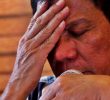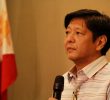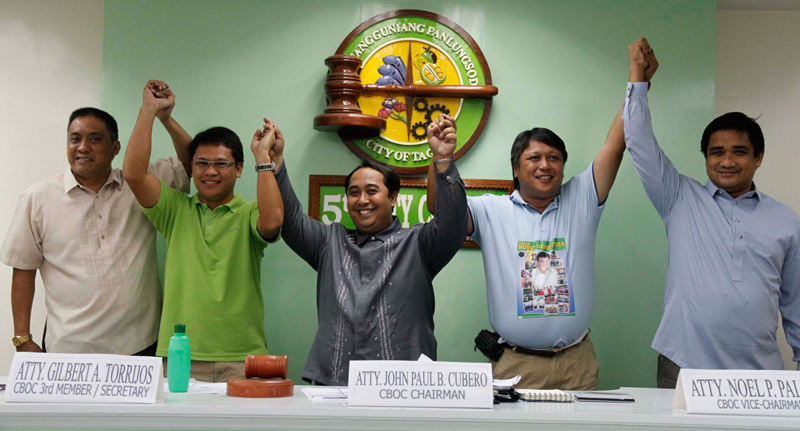At first sight it would seem that “malasakit” (which could mean anywhere between concern, empathy, sympathy, commiseration, solidarity, and whatnot) is just what the nation needs as a virtue to cultivate among politicians and citizens alike. It is profusely endorsed by no less than concerned media managements themselves and shrilly trumpeted in the air lanes by TV and radio people the whole of broadcast hours from ‘sign on’ to ‘sign off’. And nowhere is this more capitalized and artfully packaged than in election season wherein politicians are at the center stage marketing their candidacy to the electorate.
One presidentiable in his most out-of-character role-play eats his meal with his bare hands side-by-side with lowly work hands. Another presidential bet wrinkles his forehead, affectedly droops his eyes, and twitches his lips in undecipherable babbles as he mingles with slum dwellers ostensibly to deliver his deep sympathy, or whatever it is that stirs his mind and heart, to the impoverished. Yet another one, a senatoriable, catalogs the unforgiveable sins of the incumbent administration’s presidential candidate in the aftermath of Yolanda disaster, and for being unmindful of the plight of the poor.
Perhaps what presents as the most attractively packaged “malasakit” is that of a presidential aspirant who delivers his virtue in a fistful of daringness which his adversary tauntingly calls a ‘siga-siga’ bullying stance. Woe is the candidate politician who cannot package his/her malasakit sentiment in the most ingenious fashion, she may just miss the chance to qualify for the voters’ attention.
Amidst these manifold ways of packaging the much-abused notion of “malasakit”, granting that it is indeed the needed remedy to cure the ills of the nation, how are we going to deconstruct or de-package it so that we can distinguish its real nature from the trappings. Or the better to unmask what is mere lip-service and recognize what springs from genuine commitment.
First, let us accept ‘malasakit’ as a virtue—yes, it is a virtue devoutly to be manifested in deeds. When one succors a neighbor in dire need of deliverance from extreme misery due to a killer disease, answers his medication or hospitalization gratis et amore, that is certainly ‘malasakit’ in its pure form. When a congressman extends scholarships to indigent children deserving of high school or college education among his constituents, yes that is as well a gesture of ‘malasakit’, no matter that the funds be derived from questionable source. When a Senator gives out P20,000 to cover the burial expenses of a victim of a calamity, yes that is an expression of ‘malasakit’ on its face value, especially if it is not trumpeted publicly.
Ideally, it must spring eternal in the subjectivity of the actor. But one’s intention or motive can only be gathered from the effect, not from a broadcast or annunciation of the act. Malasakit, can manifest in overt or covert fashion. It can be of very individualized scope, or of limited remedial alleviation from a public disaster.
Definitely, malasakit as a manifestation of concern for an individual someone or a group in extreme need for uplift from impoverishment, cannot be a reliable scale in gauging the motive of a politician. Not even the grant of scholarships to hundreds or thousands of poor children by a senatoriable can be the kind of malasakit called for in contemplating on the intention or motive.
The kind of malasakit demonstrated by the politicians as dramatized in the broadcast media is not at all geared towards the emancipation of the masses from age-old penury. On the contrary, just like the so called “charitable acts of mercy” enjoined by the Christian churches, there is no intention of eradicating poverty. Its covert assumption is that poverty should be a permanent condition to give eternal basis for the charitable injunction. The acts of malasakit shown by one presidentiable’s role play as a “Mr. Palengke”, of another one as “champion of the masses”, and a senatoriable’s self-proclamation as “someone concerned with problems of the masses” are mere blabbers or lip-service. They are a display of contemptible patronizing habits of the wealthy or condescending behavioral acts of the ruling elite.
True malasakit derives premises from a recognition of poverty and underdevelopment as the root causes of the people’s miseries. As such, the urgent need to eradicate poverty should constitute the main agenda in a presidentiable’s platform or program of government when elected. It is a quality of malasakit that is based on sustainable economic programs and projects. It is a consciousness that serves as wellspring for the adoption of long-term solution to stagnant economic development and that advocates alternatives to Status Quo maladies. It is the malasakit borne out of a scientific awareness of concrete conditions, and therefore proceeds from a concrete analysis of social realities. It does not countenance pretensions, deceit and hypocrisy.
The imperatives for Change seriously, sincerely and vigorously throb in the heart of the Presidentiable who recognizes that malasakit must be embodied in an alternative agenda for a radical alternative to the Status Quo.










